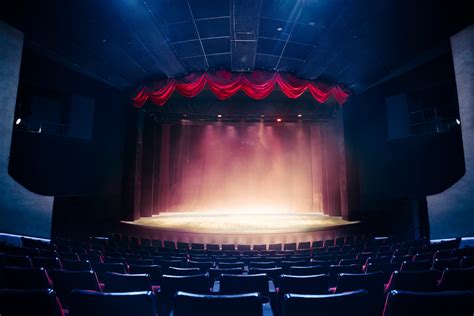The world of theatre has undergone significant transformations over the years, with technological advancements playing a pivotal role in shaping the industry. One of the most crucial aspects of modern stage productions is tech theatre, a term that encompasses the technical elements that bring a performance to life. In this article, we will delve into the world of tech theatre, exploring its various facets, importance, and how it has revolutionized the way we experience live performances.
What is Tech Theatre?
Tech theatre refers to the technical aspects of a theatrical production, including lighting, sound, special effects, and stage management. It involves the use of technology to create an immersive experience for the audience, enhancing the overall impact of the performance. Tech theatre is a vital component of modern stage productions, requiring careful planning, coordination, and execution to ensure a seamless and engaging experience for the audience.

Key Elements of Tech Theatre
Several key elements come together to create a successful tech theatre setup. Some of the most crucial components include:
- Lighting: Lighting plays a vital role in setting the mood and atmosphere of a performance. Modern lighting systems use advanced technology, including LED lights, moving lights, and computer-controlled lighting consoles, to create a wide range of effects.
- Sound: Sound design is another critical aspect of tech theatre, involving the creation and implementation of sound effects, music, and audio cues. Modern sound systems use digital technology, including digital audio workstations and software, to create and control sound.
- Special Effects: Special effects, such as pyrotechnics, smoke, and haze, can add an extra layer of excitement to a performance. Modern special effects rely on advanced technology, including computer-controlled systems and sensors, to ensure safe and precise execution.
- Stage Management: Stage management is the backbone of any theatrical production, involving the coordination of logistics, schedules, and personnel. Modern stage management relies on advanced software and communication systems to ensure smooth execution.
Benefits of Tech Theatre in Modern Stage Productions
The integration of tech theatre in modern stage productions offers numerous benefits, including:
- Enhanced Audience Experience: Tech theatre can create an immersive experience for the audience, drawing them into the world of the performance. Advanced lighting, sound, and special effects can evoke emotions, create tension, and build excitement.
- Increased Efficiency: Modern tech theatre systems can streamline the production process, reducing setup times and minimizing the risk of errors. Automated systems and software can also help to reduce labor costs and improve safety.
- Improved Creativity: Tech theatre offers a wide range of creative possibilities, allowing designers and directors to push the boundaries of what is possible on stage. Advanced technology can be used to create innovative set designs, lighting effects, and soundscapes.

Challenges and Limitations of Tech Theatre
While tech theatre offers numerous benefits, it also presents several challenges and limitations. Some of the most significant challenges include:
- Cost: Implementing advanced tech theatre systems can be expensive, requiring significant investment in equipment, software, and personnel.
- Complexity: Modern tech theatre systems can be complex, requiring specialized knowledge and training to operate effectively.
- Technical Issues: Technical issues, such as equipment failure or software glitches, can arise during a performance, disrupting the show and affecting the audience experience.
Best Practices for Implementing Tech Theatre in Modern Stage Productions
To ensure successful implementation of tech theatre in modern stage productions, follow these best practices:
- Plan Carefully: Careful planning is essential for successful tech theatre implementation. This includes identifying technical requirements, budgeting, and scheduling.
- Invest in Training: Invest in training for technical personnel, including lighting and sound technicians, stage managers, and special effects operators.
- Test and Rehearse: Thorough testing and rehearsal are crucial for ensuring smooth execution of tech theatre elements during a performance.

Conclusion
Tech theatre is a vital component of modern stage productions, offering a wide range of benefits and creative possibilities. By understanding the key elements of tech theatre, its benefits, and challenges, and following best practices for implementation, theatres can create immersive and engaging experiences for their audiences.
We hope you enjoyed this article on tech theatre in modern stage productions. Share your thoughts and experiences with us in the comments below. Don't forget to like and share this article with your friends and colleagues.






What is tech theatre?
+Tech theatre refers to the technical aspects of a theatrical production, including lighting, sound, special effects, and stage management.
What are the benefits of tech theatre in modern stage productions?
+The benefits of tech theatre in modern stage productions include enhanced audience experience, increased efficiency, and improved creativity.
What are the challenges and limitations of tech theatre?
+The challenges and limitations of tech theatre include cost, complexity, and technical issues.
